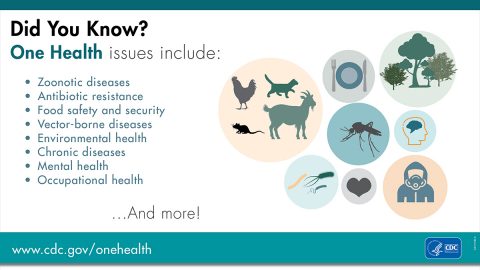Free Advice To Picking Dog Skin Allergy Treatment
Wiki Article
What Are The Most Common Animal Health Issues?
Medical issues in animals can vary depending on the animal's species, age as well as the overall health of the individual animal. Common medical issues in animals include-
Heart Disease- Heart failure and other conditions that affect older animals can cause a decrease in cardiac function. Endocrine Disorders: Hormonal imbalances can make animals unwell.
Diabetes- Diabetes is a severe condition which can be seen in both animals and humans. Treatment options include insulin therapy, dietary changes and diet adjustments.
Renal (Kidney Disease) Kidney disease is a condition that can be common in cats and dogs who are older. It may need medical treatment as well as dietary modifications.
Bladder and Bladder and Urinary Tract Issues - Conditions like urinary tract infections, bladder stones, and urinary incontinence may be a problem for animals.
Allergies. Animals may be allergic to food or environmental factors, as well as contact allergies that may cause skin and digestive issues.
Behavior Problems - Animals suffering from behavior problems such as aggression, anxiety or phobias could need to be handled by a veterinarian.
Wounds and injuriesUnintentional injuries, fights or falls can result in wounds, fractures, and soft tissue injuries which require medical attention.It's crucial to remember that early detection and prevention are key for maintaining the health and well-being of animals. A healthy diet, frequent veterinary visits, vaccinations, parasite prevention, and routine checks can help to prevent frequent medical problems. Additionally, prompt medical attention should be sought when a pet exhibits symptoms of discomfort or illness. The best of the finest kidney failure in cats for more tips.

What Are The Most Effective Supplements And Vitamins For Dogs?
The selection of vitamins, probiotics, and supplements for dogs ought to be based on your dog's individual needs and any recommendations from a veterinarian. It's vital to give your dog a balanced and balanced diet. However, some dogs can be benefited by supplements. Below are some supplements that are beneficial to dogs.
Antioxidants. Vitamin C and E are antioxidants that can assist in protecting the dog's cells from damage caused by oxidation and improve their immune system. Calcium and Vitamin D: These nutrients are essential for strong bones and healthy teeth particularly in large breed dogs and puppies.
Fiber Supplements for Dogs: For dogs suffering from digestive problems like constipation or diarrhea Fiber supplements that are soluble can aid in regulating bowel movements.
Green-Lipped Musssel Extract- This supplement is rich in omega-3 fatty acids. It can reduce joint inflammation and increase mobility in dogs suffering from arthritis.
Coenzyme Q10 (CoQ10) is an antioxidant that may help promote heart health, and the production of energy in cells.
Milk Thistle- This herb is utilized to help support the health of the liver and is beneficial for dogs with liver conditions or who are taking medication that affects the liver.
It is important to speak with your veterinarian before you give any supplements to your dog. Your vet will give you suggestions that are tailored to the needs of your dog and its conditions. Dosages can differ based upon factors such as your dog's size or age and overall health and over-supplementation could cause harm. It is important to select supplements that are made by reliable firms as the quality and safety can differ. Always adhere to the dosage guidelines and keep an eye out for adverse reactions. Contact your veterinarian immediately when you notice any unusual symptoms or reactions. A well-balanced and veterinarian-recommended diet is typically the best way to meet your dog's nutritional needs, and supplements should only be used when necessary and under professional guidance. The very best of the finest pet herbal supplements for dogs with energy issues for blog recommendations.

What Is The Rate Of Yeast Infections, Skin Allergies And Kidney Failure? What Are The Treatments Available?
The frequency of allergies to skin, yeast infections, as well as kidney disease in dogs varies depending on the breed, health, age, and so on. Here's a quick review of these conditions as well as their possible solutions.
Skin Allergies: Prevalence. Skin allergies affect an important portion of dog populations. Allergies can be caused by a range of triggers, including food and environmental factors like pollen or dust mites, and contact allergies.
Itching and skin redness. Other symptoms may be the loss of hair, ear infections, or hot spots.
Treatment- The treatment of skin allergies typically involves identifying and limiting exposure to allergens. Treatments may include antihistamines and corticosteroids, as well as hypoallergenic food items, medicines such as cyclosporine, and hypoallergenic diets. For a long-term solution allergy shots and allergy testing can be thought of.
Although these diseases are quite common for dogs, they don't affect all of them. The severity of these diseases can vary from breed to breed and dogs. Regularly scheduled veterinary exams as well as a balanced diet and preventative steps (such as good hygiene and flea prevention) will all help lower the risk. If you think your pet may be suffering from an issue with their health, such as yeast infections, skin allergies, or kidney problems, it's essential to consult with a veterinarian for an accurate diagnosis and tailored treatment plan. Early intervention can lead to better outcomes and improved the quality of life for your dog. Take a look at the most beautiful pet herbal supplements for ranch dogs for site advice.
